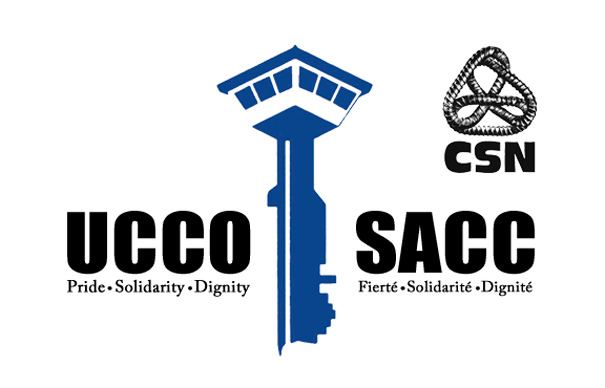Are health and safety all that important to our employer? Following the last National Health and Safety Policy Committee meeting held on October 16, 2024, we would be tempted to answer no. Health and safety should always come before money. Unfortunately, the employer doesn’t always seem to think so. Without further ado, here are the points raised at the meeting.
Light bars on escort
The employer presented a powerpoint on light bars to the Committee. Unfortunately, this presentation failed to answer our questions in compliance with current legislation on consultation and analysis. Employment and Social Development Canada sent three investigators to monitor the Committee’s work on this issue. For nearly six months, the Committee has asked the employer to provide the documents needed to analyze and plan this project’s implementation. After all this time, the employer cannot explain intelligibly why it wants to remove the flashing lights. We are waiting for statistics on accidents or incidents relating to light bars , the 2012 report from the NHSPC on the original decision to install light bars on CSC vehicles, assurances that this issue has been addressed in each local and regional committee across the country, memorandums of understanding with police forces across the country to understand the type of response in the event of an emergency during an escort as well as operational risk analysis and factual analysis on the use of light bars. This is yet another example of poor leadership on an issue that has a real impact on the health and safety of our escort members.
Water Quality
Pacific Institution has been experiencing problems with its drinking water supply for the past few months. This experience has prompted many questions from Committee members about this vital aspect of their work. A presentation was made on the subject. We have requested the results of nationwide water sample analyses, including our institutions and community offices. Regulatory standards for drinking water are very stringent in Canada. Once we have access to these results, we will analyze them to check that no water we drink at our workstations contains contaminants that may adversely affect our health and safety in the short, medium, or long-term.
Needle Exchange Program
The employer stubbornly insists on deploying this wrong-headed and harmful program and continues to implement it in our institutions nationwide. Its course of action rests mainly on a misreading and flawed assessment of the Simons ruling and on applying techniques borrowed from the community. Besides being harmful and dangerous, this program contravenes the mission of the Correctional Service. The Committee requested the most recent statistics on PNEP-related usage and incidents, which the employer should have provided at this meeting. In addition, the Committee requested the PNEP implementation schedule for 2024–2025, which was provided to the unions without first being subject to consultation within the Committee, once again in breach of the law.
Respiratory Protection
We haven’t carried out fire rescues for many years. Our SCBAs are only used to evacuate an area in the event of a major fire or effectively control a minor fire. The Correctional Service engaged the services of an industrial hygienist who visited two sites to get a clear picture of our situation. The National Research Council of Canada conducted tests in a dummy cell with standard contents and some typical personal effects among inmates. The study found that, for the time being, our SCBA masks remain the best means of personal protection for our needs. The Correctional Service is examining the possibility of a partnership with National Defence, which is carrying out tests on new technologies under its development. We’ll be monitoring this matter closely in the months ahead.
Joint Health and Safety Training
This issue is important to us and may soon be resolved satisfactorily. In the past few years, there has been a significant increase in the number of recourses involving sections 126 and 127 of the Canada Labour Code and refusal to work under section 128. These recourses are governed by law, but they are often not well understood by middle or first-level managers. For this reason, we have agreed with the employer that our Union’s occupational health and safety representatives and those of the Correctional Service will jointly deliver training designed to promote a common understanding of risk analysis and the investigative processes. We hope this will lead to a more effective resolution of health and safety issues. The trainers will be trained in winter 2025, at which point training sessions may begin. We will ensure that as much training as possible is delivered in the 2025-26 financial year.
In Closing
Correctional Service Canada must hold substantive consultations on implementing health and safety programs locally, regionally, and nationally. Unfortunately, many CSC managers still have a corporate vision that places budgetary constraints and operational progress above the health and safety of employees. Preventing workplace accidents should not be viewed as a simple performance indicator or a painful time to spend with trade unions. The consultation process must be much more collaborative than it is now if we really want to make progress on prevention. We urgently need to do some serious soul-searching on the issue of occupational health and safety.
Be safe.
Your health and safety representatives

